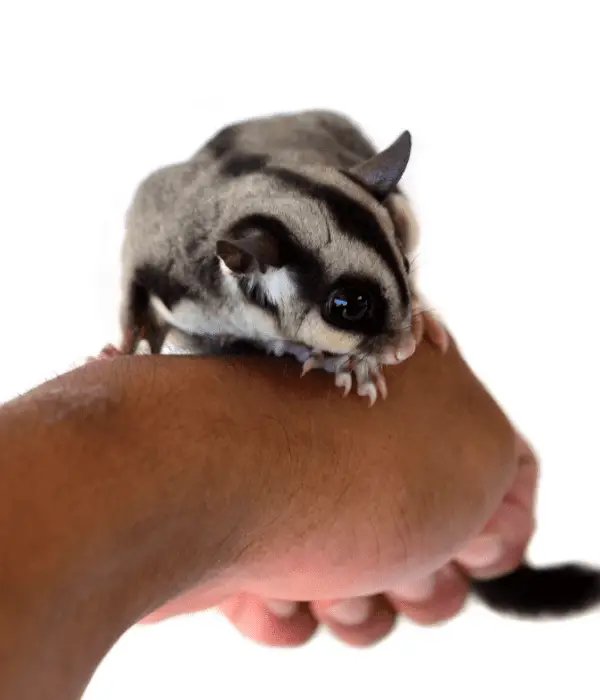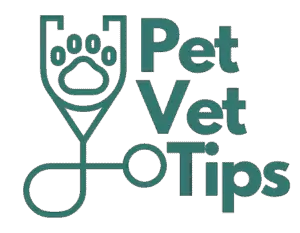
While it’s not possible to eliminate this odor, ensuring their diet is well balanced, litter training their glider, and castrating your male sugar glider are some strategies that may help decrease the strength of this not-so-sugary scent.
This article will dive into what gives the sugar glider its unique smell and what you can do to reduce this odor both on your glider and in its environment.
The Sugar Glider Scent
Like other social species, a sugar glider’s scent is vital in communicating with other gliders. Males, especially, begin to release a more pungent odor during mating season as a signal of their virility and willingness to tango with the ladies. Female gliders also have scent glands, but these are fewer in number than males, and they are less likely to scent-mark around their environment.
Pet Vet Tip: For more information on how male and female sugar gliders differ, have a look at this article.
While it is possible to decrease the pungency of this scent, be aware that it will never be possible to eliminate it completely. A sugar glider’s scent is a perfectly normal part of their physiology.
Possible causes of foul odor in Sugar Gliders
Poorly Formulated Diet
All sugar-bear parents are likely aware that diet is the most punctilious aspect of keeping a glider. A high-protein diet containing high amounts of meat or insects can increase urea production, resulting in an increased kick to your glider’s droppings. Therefore, ensure that your glider’s diet consists of approximately 50% pellets, 25% fresh fruit and vegetables, and 25% protein.
Another diet-related cause of the foul odor is diarrhea. Diarrhea may be caused by the sudden introduction of new food, feeding spoiled food, or parasites. A sugar glider’s droppings should always be well-formed. If your glider has diarrhea, book a veterinary appointment, as diarrhea can quickly dehydrate an animal this small.
Scent marking
Male sugar gliders have more scent glands than females (on their head, chest, and around the genital area) and, therefore, naturally have a stronger scent than females, especially during the breeding season, which occurs in Spring and Summer.
During this period, sugar gliders may scent mark more than usual, creating an increased body odor and stronger scent around their enclosure. While it may seem intuitive to rectify this by thoroughly cleaning all toys, bedding, nesting boxes, etc., be aware that by obliterating a glider’s scent from their environment, they will be further motivated to scent-mark to re-establish their scent. Instead, clean half the objects in your glider’s enclosure at a time to ensure that some of their scents remain in the cage, and they won’t feel the need to scent mark “new” objects in their cage strongly.
Fear
When frightened, sugar gliders may produce a white malodourous substance from the glands around the cloaca. This behavior is called “skunking” by some pet owners. If you notice this discharge frequently, further investigation should be done to identify and rectify the cause of this anxiety in your glider.
This discharge may be expected in the early stages of bonding with your glider but should resolve once your glider is well-bonded and feels safe.
Pet Vet Tip: For more tips on how to calm a stressed sugar glider and how to tell wether your sugar glider is happy, have a look at the linked articles.
Inadequate Cage Cleaning
Feces and soiled blankets/ bedding must be removed daily from your glider’s cage. In addition, consider litter training your glider, as this will make cage cleaning easier and decrease the build-up of odors in the cage. This will be further explained below.
Regardless of whether your glider is litter trained or not, the enclosure should be deep cleaned with hot water and dish soap/vinegar or a veterinary-approved detergent at least every two weeks.

Methods to eliminate foul odor in your Sugar Glider
Choose a female glider over a male glider
If you are still in the process of getting a sugar glider and you are concerned about the potentially associated smells, consider purchasing a female glider instead of a male. Female gliders have smaller scent glands and generally have a reduced body odor.
Have your male glider neutered
If you are not planning on breeding with your glider, neutering your male glider has many benefits. Neutering inhibits the release of testosterone, resulting in a decrease in the size of the scent glands and a reduced body odor. Neutered gliders also scent-mark less frequently as they are less territorial. Neutering also decreases inter-glider aggression and reduces the chance of testicular cancer.
A specialized Exotics vet can perform this procedure for gliders two months and older.
Litter train your sugar gliders
Litter training your glider is very much possible, provided that you are willing to put in the work to train this behavior.
Sugar gliders generally stick to a rough schedule for their eating and toileting behavior. Gliders usually defecate when waking up and after a meal. Observe your glider for a few days to get an idea of their schedule.
Litter training involves simply placing your glider into a litter tray when they usually defecate. Your glider should begin associating being in the litter tray with toileting and eventually only defecate in the tray, making daily cage cleaning a lot easier.
If placing them in the litter tray does not work after a few days, it may help to gently stimulate their genital area with unscented baby wipes or damp cotton wool while in the litter box, at the time they usually defecate.
Once successfully litter trained, their enclosure will be significantly cleaner, and it will become possible to carry your glider with you in a pouch without having to worry about finding “presents” afterward. In addition, your glider will alert you to their need to relieve themselves, usually by moving around, at which point you can place them in their litter box.
Pet Vet Tip: For more tips on how to prevent your sugar glider from soiling on you, have a look at this article.
Odor-absorbant cage liners
Consider using a glider-safe substrate on the floor of your glider’s enclosure to absorb smells and any urine spray. Fleece, aspen shavings, or shredded paper are good options. These should be replaced every 2-3 days.
Bathing your Glider
Bathing your glider is unnecessary, as healthy gliders can groom themselves effectively and impeccably, similar to cats.
Bathing may only become necessary if your glider is ill and can’t groom itself or if there is something matted in its fur that can’t be easily removed. In these cases, you can gently wipe your glider down with baby wipes or warm water and baby shampoo, ensuring that no water or shampoo gets into their eyes, nose, or ears and that they are entirely dried afterward to prevent hypothermia.
Dry them using a towel and place them in a warm area or against your skin until they are fully dry and fluffy. Do not use a blow dryer, as these temperatures can cause burns on your glider’s sensitive skin.
Conclusion
Sugar gliders are wonderful, spunky pets who can make great companions. The “sugar glider scent” is no need to avoid this pet. Correct dietary management, litter training, thorough cage cleaning, and neutering of male gliders are methods through which this scent can be successfully reduced, allowing you to spend many quality hours with your closely bonded pet.
Pet Vet Tip: Ever wondered if keeping your sugar gliders outdoors is a good option? Have a look at this article.
References
- Banks, R., 2013. Exotic small mammal care and husbandry. Hoboken: John Wiley, pp.81 – 92. https://onlinelibrary.wiley.com/doi/book/10.1002/9781119265405
- Stoddart, D.M. and Bradley, A.J. (1991) “The frontal and gular dermal scent organs of the marsupial sugar glider ( petaurus breviceps ),” Journal of Zoology, 225(1), pp. 1–12. Available at: https://doi.org/10.1111/j.1469-7998.1991.tb03797.x.
- Schuppli, C. A., Fraser, D., & Bacon, H. J. (2014). Welfare of non-traditional pets. Rev Sci Tech, 33(1), 221-231 https://www.wellbeingintlstudiesrepository.org/wileapet/2/
- Tynes, V., n.d. Behavior of Exotic Pets. Wiley-Blackwell, pp.181-189.Donnelly, T., 1970. The BSAVA manual of exotic pets (4th ed.): Semantic scholar.

